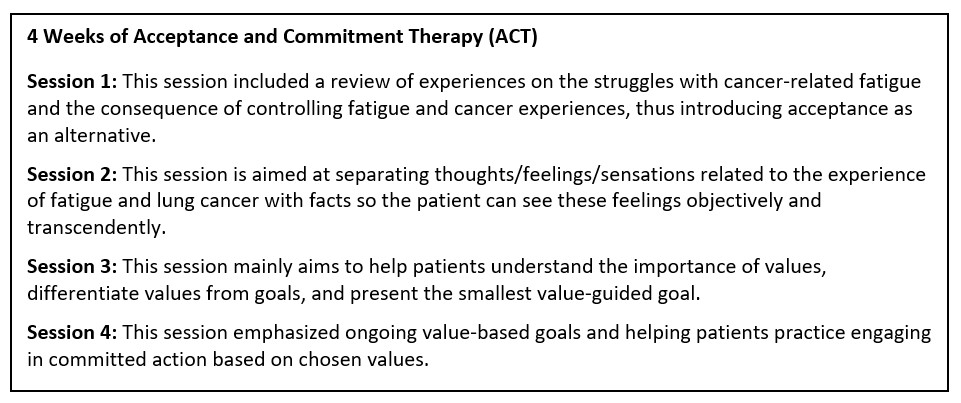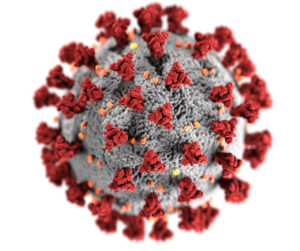The Oncology Connection
Acceptance and commitment therapy (ACT) provided benefits to patients with advanced lung cancer but did not have a significant effect on fatigue interference, according to a pilot trial conducted at The Chinese University of Hong Kong. With ACT, participants reported significantly fewer depressive symptoms (P<0.001), lower levels of anxiety (P<0.001), distress (P=0.003), and cancer-related fatigue (CRF, P<0.001) and better health-related quality of life (P=0.001) than those who received usual care. Approximately 95% of patients reported satisfaction with the intervention.

In the single-blinded, parallel-group, randomized controlled trial (ClinicalTrials.gov: NCT04869267), 40 patients with advanced lung cancer were randomly assigned to either the intervention group, which received the 4-session individual ACT in 4 weeks (the first session took place in person; sessions 2, 3, and 4 were virtual) or the control group, which received usual care. A draft version of the study, which will be published in Asia-Pacific Journal of Oncology Nursing, is available online.
Fatigue interference refers to the degree that CRF interferes with different aspects of life. The trial sought to evaluate the use of ACT on fatigue interference because cognitive and behavioral therapy (CBT), which aims to identify CRF thoughts and correct them through cognitive efforts, may not be ideal for patients with advanced-stage lung cancer. “The process of eliminating irrational cognition and building new cognition means denying and avoiding one’s CRF experience to a certain extent,” wrote the investigators, led by Huiyuan Li, PhD, citing research that showed the long-term avoidance of CRF-related thoughts and feelings suppresses negative emotions, decreases tolerance to physical symptoms, and restricts activities, ultimately increasing CRF.
Alternatively, ACT is a mindfulness-based behavioral therapy that does not aim to reduce symptoms but to improve function and health-related quality of life by increasing psychological flexibility. “In the context of CRF, ACT may cultivate patients with advanced lung cancer to accept physical sensations and psychological feelings related to CRF, focusing on them without judging or making unnecessary attempts to control CRF and negative feelings towards advanced cancer and performing tasks that are really important to them,” the investigators wrote.
In the trial, fatigue interference was assessed by the Fatigue Symptom Inventory, a 13-item instrument that measures the intensity and interference of fatigue over the previous 7 days. Health-related quality of life was assessed by Functional Assessment of Cancer Therapy-Lung, Version 4. Assessments were conducted at baseline, 1 week, and 3 months following the 4-week ACT intervention.
A variety of tools were used to assess CRF, depressive symptoms, anxiety, psychological distress, exercise capacity, psychological flexibility, acceptance, and cognitive fusion.
For more information
Acceptance and Commitment Therapy in Patients With Advanced Lung Cancer (ACT). ClinicalTrials.gov: NCT04869267. https://clinicaltrials.gov/ct2/show/NCT04869267 Li, H., Jin, X., Ng M.S.N., Mann, K.F., Wang, N., Wong, C.L., Effects of Acceptance and Commitment Therapy on fatigue interference and health-related quality of life amongst patients with advanced lung cancer: A pilot randomised controlled trial. Asia-Pacific Journal of Oncology Nursing, https://doi.org/10.1016/j.apjon.2022.100102.







